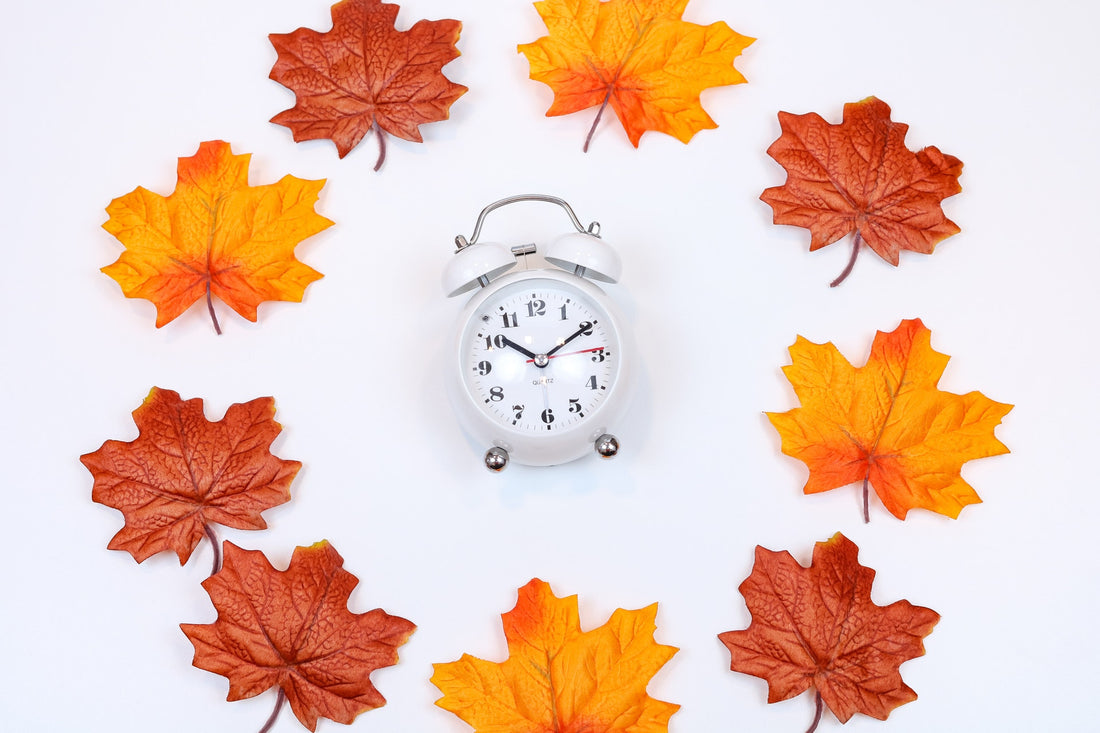
What Is The Impact Of Time Change On The Immune System
Share
The time changes due to factors like daylight saving, fall back, and traveling across different time zones could have a serious long-term impact on the functions of the immune system. Several studies have revealed that the change in time can affect the body’s circadian rhythm due to which the activities of the immune cells may be affected. Here is a brief discussion about the impact of time change on the immune system and the right way to avoid them.
The Impact Of Time Change On The Immune System
Transition to Daylight Saving Time
 The transition to DST (daylight saving time) is believed to be beneficial for the environment as it supports energy conservation. However, at the same time, DST has been reported to contribute to the risk of immunological, cardiovascular, and cerebrovascular problems.
The transition to DST (daylight saving time) is believed to be beneficial for the environment as it supports energy conservation. However, at the same time, DST has been reported to contribute to the risk of immunological, cardiovascular, and cerebrovascular problems.
Research studies that were aimed at assessing the effects of the forward and backward DST shifts by an hour in spring and autumn on the immune system have revealed alarming results.
These studies have revealed that the impact of time change on the immune system could be linked to disruptions in the body’s internal clock called the circadian rhythm. The disturbances in the circadian rhythm can make immune cells less efficient at fighting infections and controlling inflammation and oxidative stress. This could put patients at risk of developing infections such as common cold, and flu, or exacerbations of allergic and autoimmune conditions.
The worsening of the symptoms of immunological diseases like non-infective colitis or enteritis is also found to be significantly associated with the DST shift.
Hence, there is a need to evaluate the impact of time change on the immune system and take proactive steps before the planned DST to protect the vulnerable group of patients against these diseases.
Traveling Across Time Zones
 Circadian rhythm modulates nearly every physiological process in our body. Chronic disruptions in the circadian rhythm are common in frequent travelers and those working in shifts.
Circadian rhythm modulates nearly every physiological process in our body. Chronic disruptions in the circadian rhythm are common in frequent travelers and those working in shifts.
Studies have revealed that experimentally-induced disruptions in the circadian rhythm could alter the body’s innate immune responses significantly. Endotoxemic shock induced by lipopolysaccharide was found to be magnified in these groups of people. It was found to increase the risk of hypothermia and even death after they were exposed to 4 consecutive weekly 6-hour phase-advances of a light-dark schedule.
This could be attributed to the increase in the release of the pro-inflammatory cytokines in response to lipopolysaccharides.
Mental stress and sleep deprivation are also common in people who have to travel frequently across different time zones or work in shifts. Stress and sleep deprivation can have a detrimental effect on immune functions and serve as potential mediators for the development of immunological dysfunctions.
The impact of time change on the immune system could be avoided by restoring a healthy circadian rhythm and avoiding sleep loss and stress associated with jet lag-linked dysregulation of the immune system.
Effect of Fall Back
The effect of the change back in fall is found to be worse than the impact of time change on the immune system during DST. By setting the clock back at around the end of October, the fall back time change perturbs the natural autumnal progression of the body to modify its response to the delay of sunrise.
Without DST, as the autumn progresses, the sun would come up later after a person wakes up. However, the resetting of the clock backward results in the sunrise after waking up in October and sunrise before waking up in November.
Moreover, setting the clock back also extends the time period between sunset and bedtime. As autumn progresses, sunset tends to occur earlier causing shortening of the photoperiod. Setting the clock back, however, exacerbates this phenomenon, causing a potential increase in light exposure at night.
These changes linked to the fall back can create a huge impact on the activities of immune cells. Thus, the daylight saving shifts in both fall and spring could have the potential to trigger chrono-disruption by way of creating subtle changes in the complex immune system.
The impact of time change on the immune system needs to be evaluated in depth so that appropriate steps can be taken to avoid immunological dysfunctions. The use of immunity-boosting supplements like BioPro-Plus could be helpful in these cases.
BioPro-Plus is formulated to help support immune system functions and assist in controlling inflammation, and oxidative stress. People who travel across time zones frequently or have to work in shifts are advised to use BioPro-Plus to help minimize the impact of time change on the immune system. The use of BioPro-Plus can also be helpful for reducing the immunological dysfunctions linked to DST and fall back.
